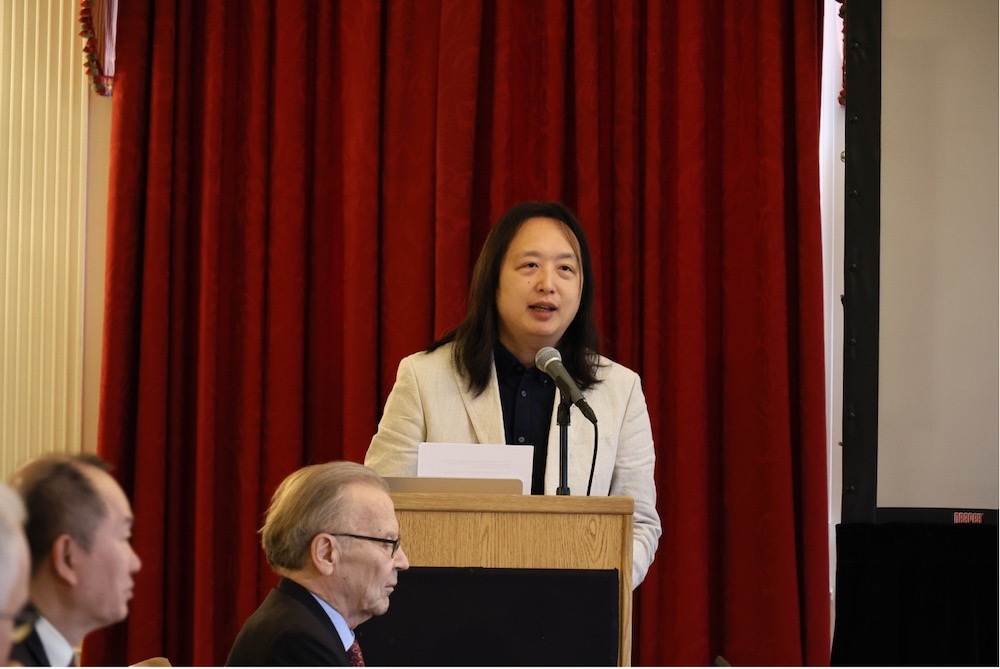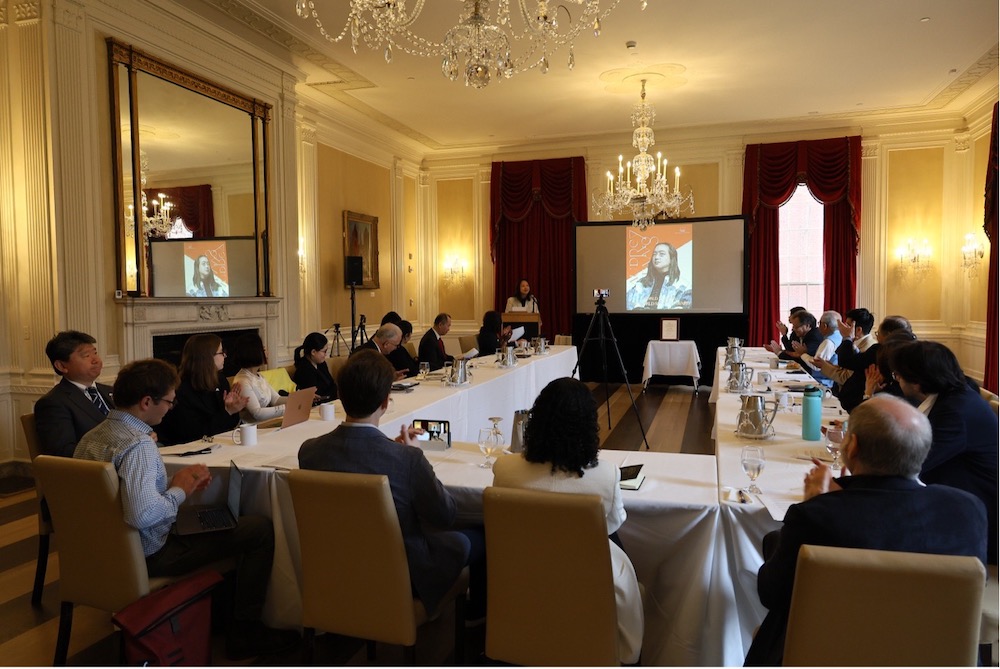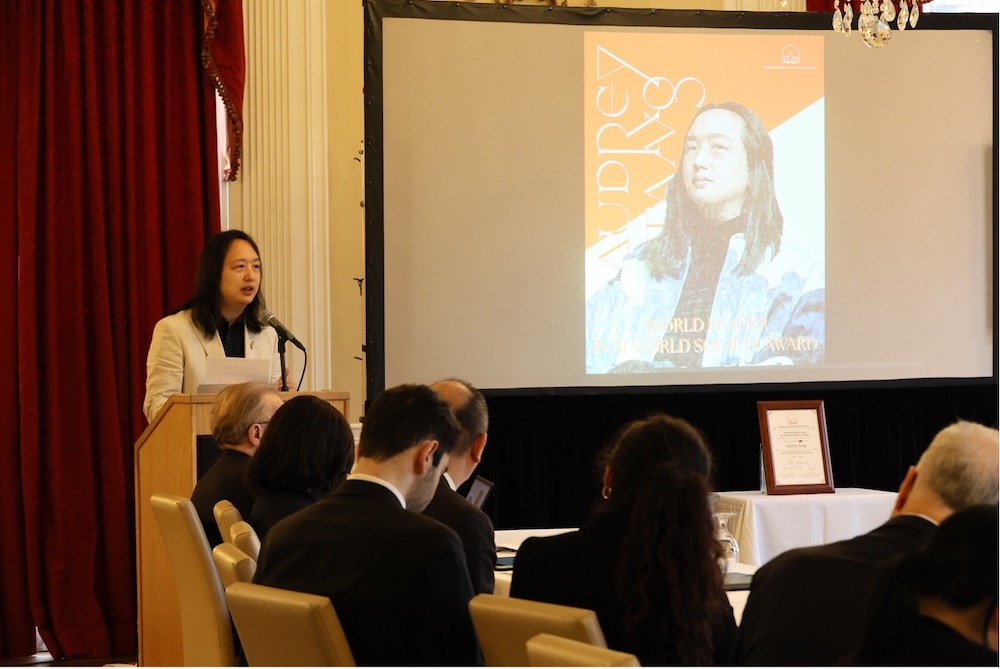Cyber Ambassador of Taiwan
Recipient of the World Leader in AI World Society Award
Harvard University, Loeb House – 17 Quincy Street, Cambridge, MA
April 22, 2025 | 8:00 AM – 11:30 AM EDT
Governor Dukakis, Co-Chairs Mr. Tuan and Professor Patterson, distinguished guests—good morning.
Standing in Harvard’s Loeb House to receive the World Leader in AIWS Award, I feel honored — and compelled. Climate shocks, border crises, cyber-conflict: today’s threats travel at machine speed, yet their solutions still rely on the tempo of human trust. Our task is to keep that trust synchronized—twenty-four hours a day, seven days a week.
People often ask what a “Cyber Ambassador” does. I answer: I help societies steer through transformative technologies. The word cyber comes from the Greek kybernetes, “to steer,” and it was Norbert Wiener who gave “cybernetics” its modern meaning here in Boston.
Today’s Boston Finance Accord for AI Governance 24/7 shows how purposeful steering can turn artificial intelligence into assistive intelligence, technology that amplifies our collective wisdom and compassion.
Why does this matter? Consider five sets of figures from Taiwan’s past decade of digital democracy:
- First, over 20 000 participants in the g0v civic-tech network have “forked” government websites into open-source versions that citizens actually prefer.
- Second, 500 000 citizens joined the 2014 Sunflower rallies, livestreamed by those same volunteers, pushing the government to adopt radical transparency as our national ethos.
- Third, The gov.tw platform—visited by 10 000 people every day—has given everyone in Taiwan a direct voice in policy, and 80 % of issues deliberated on vTaiwan have led to decisive action.
- Fourth, During COVID-19, an open-data “mask map” went live in 48 hours; Taiwan avoided lockdowns entirely, yet our economy grew by more than 12 % during the three years of pandemic.
- Last but not the least, today 91 % of Taiwanese say democracy is “fairly good”, our 15 years olds top the world in terms of civic knowledge, and and we rank among the least socially polarized societies globally.
And because no democracy is an island—not even Taiwan—those civic muscles must expand across oceans, cultures, and time zones. When one society’s guardrails wobble, tremors ripple everywhere.
I accept this award on behalf of communities that made those numbers possible. Their lesson is simple: sunlight is an immunization against manipulation. That’s the lesson of every number I just shared.
Looking ahead, I pledge two principles:
1. Prosocial Participation
Every stakeholder—citizen, startup, civil-society group—deserves a real-time seat at the policy table. Pilots in Bowling Green, Kentucky and the “Engaged California” platform are bringing the Taiwan model here to the US.
2. Plurality over Polarization
Diversity is not noise; it is a chorus. Deliberative systems must surface shared ground without erasing minority insight, proving that the remedy for polarization is not fewer voices, but more choices. Here in the US, the Utah Digital Choice Act paves the ground of freedom of movement across social networks.
Let me end by returning to its beginning, by reading a poem I wrote in 2016 — my Job Description:
When we see “internet of things,” let’s make it an internet of beings. When we see “virtual reality,” let’s make it a shared reality.
When we see “machine learning,” let’s make it collaborative learning. When we see “user experience,” let’s make it about human experience.
When we hear “the singularity is near,” let us remember: the Plurality is here.
May 2025 be remembered as the year we chose transparency over fear, collaboration over coercion, and vigilance over complacency.
Today, I am proud to serve, and prouder still to learn with all of you. Remember, Taiwan can help—and so can Boston, Tokyo, and every community that believes we can free the future — together.
Thank you for your kind attention. Live long and prosper


